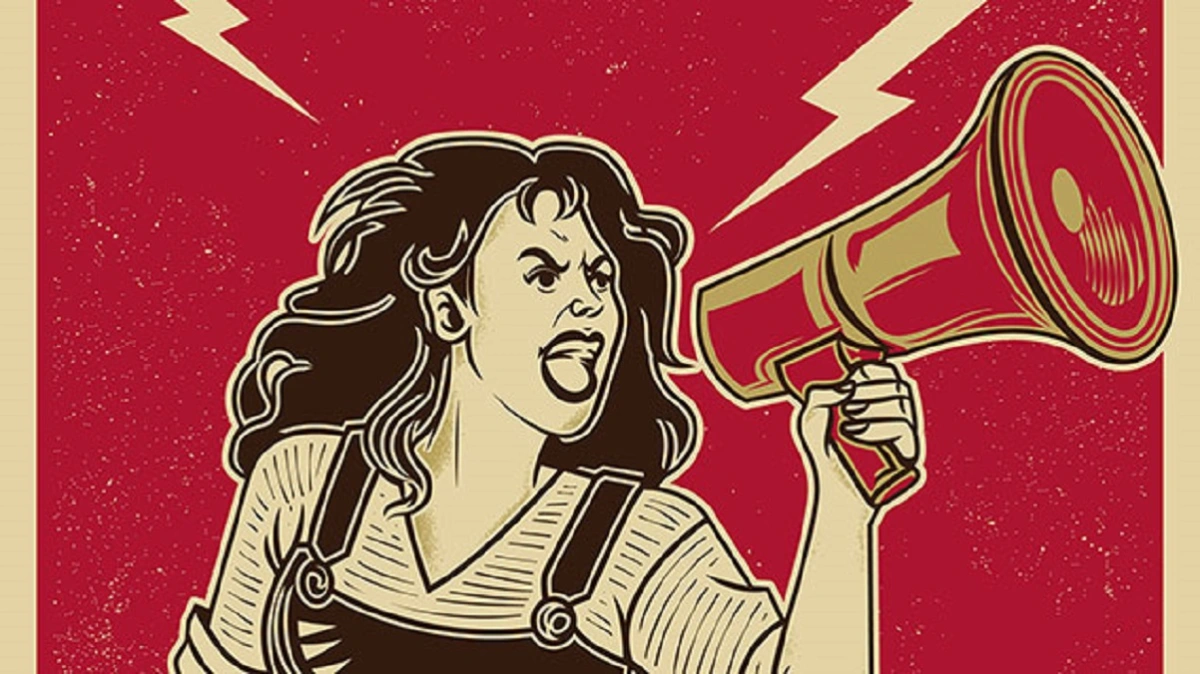On the 14th of February, 2021, environmental activist Disha Ravi was arrested on charges of sedition for sharing a ‘toolkit’ and supporting farmers’ protests online. She was charged for being part of a ‘global conspiracy’ because she was associated with Greta Thunberg’s Fridays for Future. Following her arrest, Manu Joseph, a recognised journalist, and columnist for live mint magazine wrote an opinion piece, suggesting a plan of action for the ‘sound minded’ Indian youth, to truly bring about social change. Joseph not only critiqued various young Indians’ choices to be activists but also suggested they would serve the country better if they found jobs, started on a ‘doomed business’ and aided the economy instead of “fighting battles they do not understand”.
While the opening lines of his piece truly baffle me as part of the generation he is addressing, I cannot overlook how these ideas resonate with the larger Indian public his age. The assumption that the only correct way to bring change in society is by becoming a part of the system which the youth believes needs to change is one of the primary differences between Manu Joseph’s generation and ours. Equating young protestors and activists to misguided and unemployed individuals with nothing better to do is an easy narrative most of us have heard over dining table conversations with our parents. However, the question we all must ask is why the ‘privileged youth’ of ‘sound mind’ choose to protest if the avenues for economic and political upheaval were an easy alternative. Manu Joseph, in his piece, writes that contemporary activism in India is influenced by the West, if not an extension of it and fails because it does not have the same humanitarian networks backing it as the United States does. But what this ‘practical’ advice and observation seems to ignore is that young activists in India choose to speak up despite the system and its flaws, and not because they are unaware of the lack of protection from non-state organisations and the consequences of their actions but to get rid of the pattern itself.
Joseph argues that the most effective way for the youth to ‘serve their nation’ and ‘take care of the unlucky ones’ is through encashing on the for-profit world, rather than ‘choosing the easy option of festive grandstanding and do-gooding, which is often harmful, at best useless or an inefficient way to make the world a better place.’ When Joseph states that choosing activism is the ‘easy option,’ he contradicts himself and his point about state scrutiny for activists and the lack of a humanitarian organisational mechanism for the protection of these individuals. If protests and sharing a ‘toolkit’ was in fact ‘inefficient and useless’, and ‘an easy option of festive grandstanding’, a 22-year-old, unemployed youth would not have been scrutinised and subjected to charges of sedition by the government, and young protestors would not need a mechanism to protect themselves from state action.
Another argument that Joseph makes, which is also commonly used against the youth in this country is that they do not understand their battles and are influenced by Western ideas and aspirations which often only work in the West. A response from the ‘young’ to these arguments would be to ask questions about their assumed naivety, address how the State, since its inception has borrowed several ideas from the West and continues to do so. Western ideas and aspirations are not merely being used by the youth today, but have been part of discourse across the country since its inception. Further, protest and activism are not merely borrowed Western concepts but have been part of the country’s political culture throughout history, be it Gandhi’s call to protest for Independence, or the ‘Jungle Bachao Andolan’ by tribals in Singhbhum. Joseph says that, “The young who hope to be “good trouble” can be ruined by the state, and their handlers, who use them to achieve political and ideological ends, cannot always save them”. The understanding that the young will be, and can be ruined by the state, and their ‘handlers’ will not be able to save them is premised on the belief that these activists have ‘handlers’ and are being influenced by people who will not be able to support them in the long run, completely negating the youth’s ability to think, reason, form opinions and then act.
The Court granted bail to Disha Ravi on the account of the contents of the toolkit being ‘innocuous’ and denied any account of her being part of a larger conspiracy to harm either the state or any particular community. However, the action taken by the government, and the article written by Joseph represent sentiments against the young and their actions, often misunderstood, simply because they are forms of direct dissent and expressions of freedom instead of the path that the youth has always been expected to follow. Maybe, the problem is not that activists are misinformed, unaware, gloomy individuals seeking a moral advantage as saviours for the ‘unlucky’ but that, the way they choose to bring about change is different, more spontaneous than the generations before them. Maybe, all of us truly believe that, ‘We have only one job: if we are lucky, we must take care of the unlucky; everything else is merely an argument about the best way’, as Manu Joseph puts it, and our generation’s way is different from his, possibly because of avenues like social media that connects us globally. Maybe we are not after the drug of ‘do-gooding’ alone but are only seeking different means to make the world a better place.
Saman Fatima is a third-year History Major at Ashoka University, who is often found sketching or reading for leisure when not immersing herself in mandatory class assignments.
We publish all articles under a Creative Commons Attribution-Noderivatives license. This means any news organisation, blog, website, newspaper or newsletter can republish our pieces for free, provided they attribute the original source (OpenAxis).

